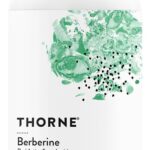Disclaimer: The information provided in this discussion is for general informational and educational purposes only. It is not intended as medical or professional advice. Only a qualified health professional can determine what practices are suitable for your individual needs and abilities.
A Layman's Guide to Understanding Cholesterol
What pops into your mind when you hear the word “cholesterol”? For many, it conjures up ideas of fatty foods clogging arteries or prescriptions for statin drugs. But despite being infamous for its unhealthy associations, cholesterol has a Dr. Jekyll and Mr. Hyde-like reputation—it can be both good and bad. This waxy, fat-like substance floating through your bloodstream impacts your health in complicated ways. Read on to learn the ins and outs of cholesterol, from busting myths to bettering your numbers.
First, let’s start by explaining exactly what cholesterol is. Cholesterol is a soft, waxy material that your liver makes naturally and can also enter your body through animal-based foods. We need some cholesterol to build healthy cells, but issues arise when we have too much of the wrong kinds. There are a few key players when it comes to cholesterol levels:
LDL cholesterol: Think “L” for lousy. This “bad” cholesterol can build up on artery walls and increase your risk for heart disease and stroke.
HDL cholesterol: “H” can remind you of healthy, because higher levels of this “good” cholesterol are associated with lower heart disease risk. HDLs act as a sanitation service, carrying cholesterol from tissues to the liver for disposal.
Triglycerides: While not technically a type of cholesterol, these fatty substances travel through your bloodstream with cholesterol and contribute to artery plaque buildup when elevated.
Now that we know who’s who, let’s explore some truths and myths about cholesterol.
Myth: Cholesterol is always bad and levels should be as low as possible.
Truth: We need some cholesterol to maintain health, as long as it’s the right cholesterol in the right amounts. The goal is having lower levels of LDLs and higher levels of HDLs.
Myth: If your cholesterol is normal, you’re in the clear.
Truth: Cholesterol levels fluctuate, so maintaining heart-healthy habits is key even with optimal numbers. Schedule regular cholesterol checks with your doctor.
Myth: High cholesterol always causes noticeable symptoms.
Truth: High cholesterol typically doesn’t produce any obvious symptoms. That’s why screening is crucial—for early identification and intervention.
Myth: Kids don’t need to worry about cholesterol.
Truth: The atherosclerosis process that leads to heart disease can begin in childhood, making cholesterol screenings important even at younger ages. Promoting healthy habits early also creates benefits over a lifetime.
The good news? You have power over your cholesterol levels through lifestyle approaches like:
- Eating heart-healthy foods like vegetables, fruits, whole grains, legumes, fish and lean protein
- Limiting saturated fats, trans fats, and added sugars
- Exercising regularly to boost HDLs
- Losing excess weight
- Quitting smoking to help lower LDLs
- Taking cholesterol-lowering medications if prescribed by your doctor
The bottom line? Don’t fear cholesterol completely—just work to manage the good and the bad. Speak with your healthcare provider about the best ways to regulate your cholesterol and keep your heart pumping strong for years to come.
Hey there! We hope you love our fitness programs and the products we recommend. Just so you know, Symku Blog is reader-supported. When you buy through links on our site, we may earn an affiliate commission at no extra cost to you. It helps us keep the lights on. Thanks.

